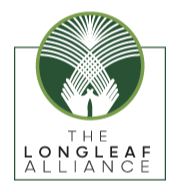Landscape Partnership Resources Library
Major Decisions and Discussions from Nov. 2014 Meeting
Major Decisions and Discussions from Nov. 2014 Core Team Meeting
Shale Gas, Wind and Water: Assessing the Potential Cumulative Impacts of Energy Development on Ecosystem Services within the Marcellus Play
A Nature Conservancy study funded by the Robertson Foundation and published by the open-access Public Library of Science (PLoS) in January 2014, assessed potential impacts of future energy development on water resources in the Marcellus play region.
Pennsylvania Energy Impacts Assessment
In 2010, TNC scientists focused on projections of how new energy development could impact natural habitats in Pennsylvania to shape strategies that avoid or minimize those impacts.
Presentation: Core Team Meeting, November 2014
Presentation by Kevin McGarigal (UMass) with updates on the Designing Sustainable Landscapes project for the Core Team Meeting
Document: Summary/Notes from Core Team Meeting
Annotations of slides and notes from discussion during the October 2014 Core Team Meeting
Development of a Spatially Explicit Surface Coal Mining Predictive Model
The goal of this project was to create a spatially explicit 1km2 grid cell model for the Appalachian Landscape Conservation Cooperative (Figure 1) predicting where surface coal mining is likely to occur in in a projected future time period, under two different scenarios. To accomplish this goal we combined GIS spatial analysis, a Random Forests predictive model, and future mining buildout scenarios. This report provides a detailed methodology of our approach and discussion of our results.
Report: Riparian Prioritization and Status Assessment for Climate Change Resilience of Coldwater Stream Habitats within the Appalachian and Northeastern Regions
Among a host of other critical ecosystem functions, intact riparian forests can help to reduce vulnerability of coldwater stream habitats to warming regional temperatures. Restoring and conserving these forests can therefore be an important part of regional and landscape-scale conservation plans, but managers need science and decision-support tools to help determine when these actions will be most effective. To help fill this need, we developed the Riparian Prioritization for Climate Change Resilience (RPCCR) web-based decision support tool to quickly and easily identify, based on current riparian cover and predicted vulnerability to air temperature warming, sites that are priority candidates for riparian restoration and conservation.
Literature Review of Freshwater Classification Frameworks
Identifying aquatic ecosystems requires a classification of stream and lake features into recognizable entities or categories. Although a number of nationally recognized terrestrial community classifications exist, the most accepted being the National Vegetation Classification System (Grossman et al. 1998), currently there is no national or international standard for classifying aquatic communities or ecosystems. Despite the lack of a national aquatic community classification, aquatic ecosystem classifications and frameworks have been developed at a variety of spatial scales. Their goal is often to reflect the distribution of aqutic biological communities. These assemblages recur across the landscape under similar habitat conditions and ecological processes (Higgins et al. 2005). The methods used to develop aquatic ecosystem classifications vary widely, as do the biotic and abiotic variables considered in the classifications. The classifications generally fall into two broad categories: 1) taxonomic or bio-ecosystem classifications and 2) environmental or geo-physical ecosystem classifications (Rowe and Barnes 1994); however some classifications combine aspects of both.
Literature Review of Freshwater Classification Frameworks
Identifying aquatic ecosystems requires a classification of stream and lake features into recognizable categories. Although a number of nationally recognized terrestrial community classifications exist, currently there is no national or international standard for classifying aquatic communities or ecosystems. Despite the lack of a national aquatic community classification, aquatic ecosystem classifications and frameworks have been developed at a variety of spatial scales to reflect the distribution of aquatic biological communities. This report reviews these freshwater classification frameworks, providing detailed analysis and application examples of taxonomic, environmental, and hydrologic classifications in use within the Appalachian region.
Presentation: Ecosystem and Species-Based Cores and Connectivity
Presentation by Kevin McGarigal (UMass) on the species-based and ecosystem-based approaches to core area generation, and their connectivity, to the Connecticut River Watershed Landscape Conservation Design Core Team
Document: Notes from 09-26-2014 Core Team Meeting
Annotated notes from Kevin McGarigal's presentation and transcript of discussions by Core Team.
Poster: Connecticut River Pilot
Poster on the Connecticut River Pilot Landscape Conservation Design by the North Atlantic Landscape Conservation Cooperative and UMass-Amherst
Enhancing the Climate Resilience of America’s Natural Resources
The President's Climate and Natural Resources Priority Agenda is the result of an interagency process to inventory and assess current policies, programs, and regulations related to climate change adaptation. The Agenda builds upon the robust climate change adaptation work already accomplished by Federal agencies and identifies significant actions moving forward. It specifically mentions how Federal agencies working to address ecosystem management issues through LCCs and other multi-stakeholder bodies will work with partners to select flagship geographic regions for which they will identify priority areas for conservation, restoration, or other investments to build resilience in vulnerable regions, enhance carbon storage capacity, and support management needs. Within 24 months, these agencies and their partners will have identified and mapped the initial list of priority areas within each of the selected geographic landscapes or regions.
Document: Signing up for Databasin and the CT River Pilot Group
Instructions for gaining access to the private group for CT River Pilot team members to review GIS results.
Document: Notes from September 22, 2014 Core Team Meeting
Notes and annotations for slide presentation by Kevin McGarigal (UMass) on connectivity modeling for the CT River watershed.
Presentation: Species-based approach to Conservation Design
Presentation by Kevin McGarigal (UMass) on the species-based (as opposed to ecosystem-based) approach to the Connecticut River Watershed Landscape Conservation Design



























